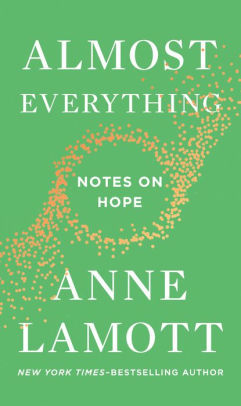More on this book
Community
Kindle Notes & Highlights
Parenting is hard, and so is old age. And every single teenager is hard—even twelve-year-old Jesus drove his folks crazy. (And no word at all on the high school years; like Obama.) Babies are hard. In-laws are hard. And forgiveness is hardest of all.
We all take on many roles, whether we deserve them or not: good wife, devoted father, dutiful child, do-gooder, rebel, witch.
I may be a loser, but I have the belief that I have an upper layer of winner. I may be a winner, but deep down I know I’m a loser, a fraud, a cipher.
Do we play anymore, step away from tasks, duties, and habits with curiosity? Tread carefully: if you are not vigilant, this may lead to wonder, which is joy, which every fear in you knows will lead to job failure and lost revenue.
But the willingness to change comes when the pain of staying where you are is too great,
the willingness to change comes when the pain of staying where you are is too great,
expectations are resentments under construction.
Any mother overflowing with love for her tender offspring wishes at times that the trapdoor would open and swallow them up.
I have taken the path of liberation: kindness.
Empathy, a moment’s compassion, seeing that everyone has equal value, even people who have behaved badly, is as magnetic a force as gratitude.
the family is the most incredible, efficient laboratory,
If we do the forgiveness work, forgiving our families and ourselves, they become slightly less “them,” and we become slightly more “we.”
Yes, it’s hard hard hard, but when I’m having a good time with my big messy family, I notice and savor it, and I say thank you, that this came from a place of joy and absurdity, that it turns out we have it in us to laugh.
Science, art, community, and nature make manifest that bad will or mistakes can lead to progress,
I’ve learned that almost more than anything, stories hold us together. Stories teach us what is important about life, why we are here and how it is best to behave, and that inside us we have access to treasure, in memories and observations, in imagination. This
Hope changes as you get a little older, from the hope that this or that happens, to hope in life, old friends, laughter, art, goodness, helpers.
“Why?” is rarely a useful question in the hope business.
The human mind, for all its bad press and worse ideas, is as awe-inspiring as Yosemite, as stars. Our minds are hardwired in many ways to do many things, only half of which from my observations are self-destructive.
Life is way wilder than I am comfortable with, way farther out, as we used to say, more magnificent, more deserving of awe and, I would add, more benevolent—well-meaning, kindly.
We have all we need to come through. Against all odds, no matter what we’ve lost, no matter what messes we’ve made over time, no matter how dark the night, we offer and are offered kindness, soul, light, and food, which create breath and spaciousness, which create hope, sufficient unto the day.


